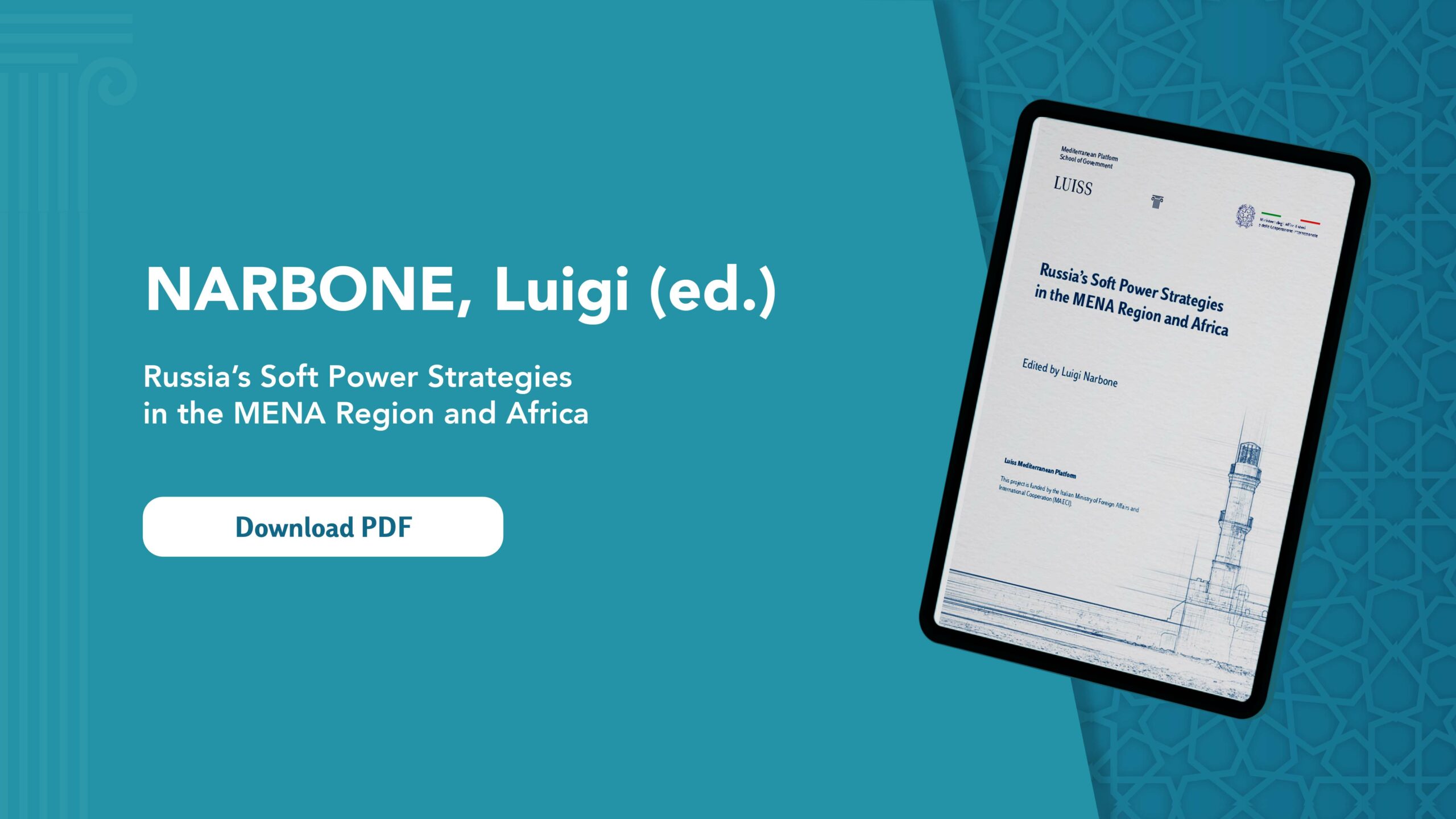Russia’s Soft Power Strategies in the MENA Region and Africa
Since the outbreak of the Russian-Ukrainian war, Russia has increasingly expanded its operations in the Middle East and Africa. Over the past decade, Russia has skilfully exploited the opportunities presented by local and regional instability to project its influence in these areas. Capitalising on its military success in Syria, Moscow has been able to strategically strengthen military, diplomatic and economic ties with numerous countries in the region, signing major political agreements and increasing trade flows and arms sales.
Hard power and the use of military force are seen in the literature as a key component of Russia’s penetration strategies. However, Russia’s growing influence is also explained by its ability to effectively manage soft power instruments in support of its strategic objectives. While its military and security activities in the region are well documented, Russia’s soft power tools such as cultural and public diplomacy, strategic communication and media campaigns have received only marginal attention.
As the geo-political and geo-economic confrontation between Russia and the West intensifies, it is imperative to develop a comprehensive framework to asses the degree of Russia’s presence in the aforementioned regions. This project examines the use of soft power in the strategies developed by the Russian Federation over the last decade in four contested areas characterised by growing Russian presence (official and unofficial) and influence: Syria, Libya, Mali and Algeria. It aims to identify the key elements of the Kremlin’s narratives, the ways in which they have been articulated and adapted to the specificities of local contexts, and the role of Russian elites and experts in shaping them.
The project seeks to understand the extent to which these narratives and discourses have been effective in complementing, justifying and maximising Russia’s overall presence in the MENA region and Africa.
This project is carried out in collaboration with a number of experts, including:
- Luigi Narbone, Director of the Luiss Mediterranean Platform.
- Virginie Collombier, Scientific Coordinator of the Luiss Mediterranean Platform.
- Luca Raineri, Assistant Professor at the Scuola Superiore Sant’Anna.
- Carolina de Stefano, Professor of Russian History and Politics at LUISS University.
- Elise Daniaud, PhD candidate at Luiss University.
Findings’ Presentation
On 16 September 2024, the research team had the pleasure of presenting its findings at the Ministry of Foreign Affairs of Italy, which has funded this timely initiative.
Presentation to Luiss Master Students
On 21 November 2024, the research team shared the main findings from the case studies on Syria, Libya, Mali, Algeria, and Russia to the students of the International Masters programs at the Luiss School of Government offering a comprehensive overview of Russia’s strategies for expanding its influence across the Middle East and Africa.

